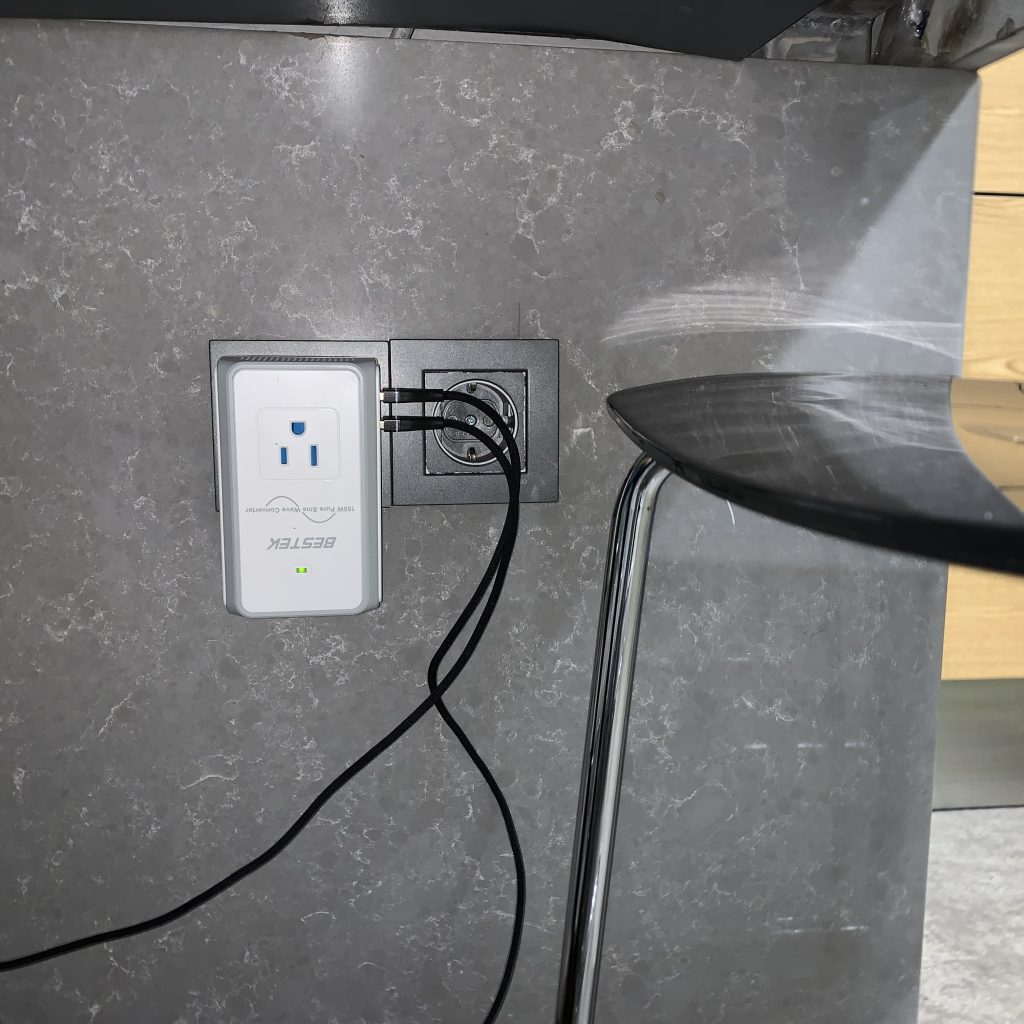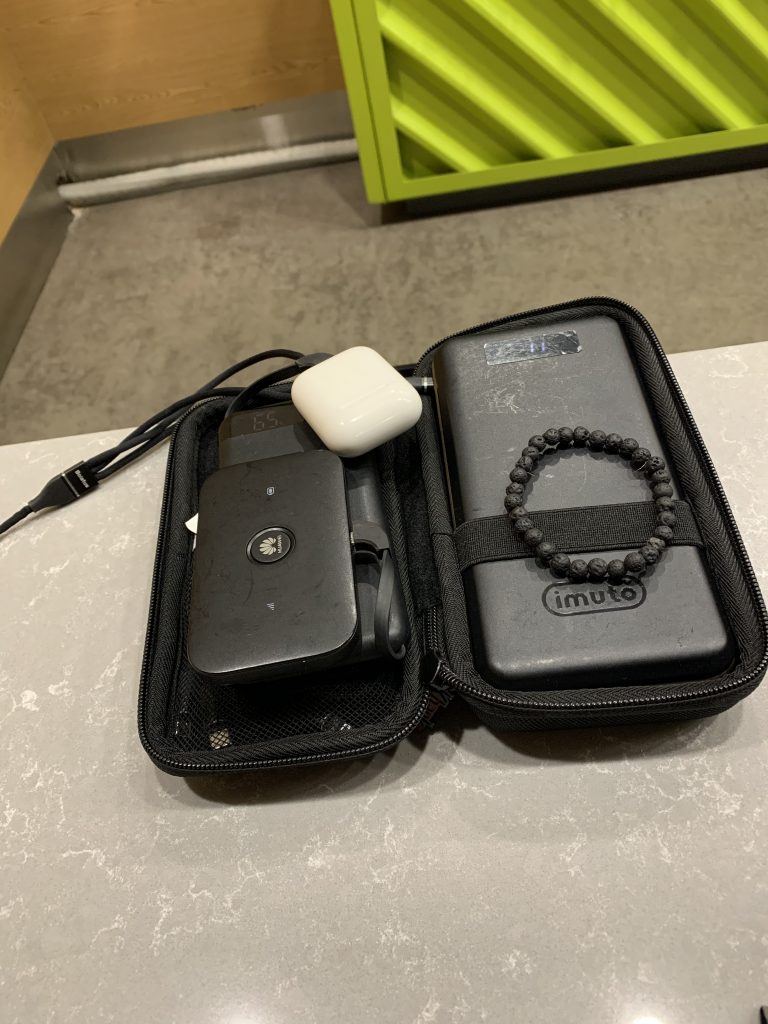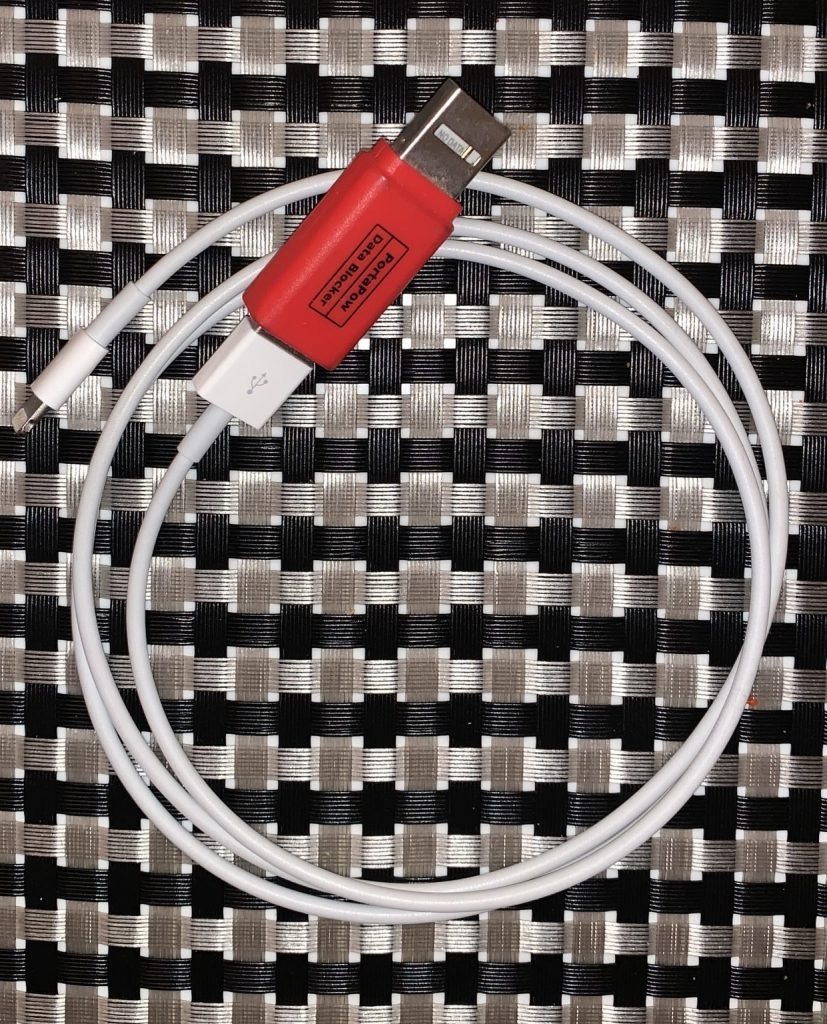I use a number of electronics for work and comfort when traveling. Over time I’ve made an effort to streamline what I carry. Not only does this reduce what I physically carry it also reduces my cognitive load when packing and removes single points of failure.
By very strictly sticking with common plug types and avoiding proprietary ones I have no issue buying replacement cables on the road in a pinch. All but one of my products charge using either USB-C, MicroUSB, or Lightning. All three of those cable types have been available, at varying quality levels, everywhere from rural British Columbia, Eastern Ukraine, Tanzania, Iraq, and Guyana. The one product I carry with a proprietary connection is not an essential item.
Goal:
Charge everything with as few cables as possible.
Plug directly in to the device to charge without a proprietary dock/stand (added stuff to carry).
Use rechargeable batteries rather than disposable.
For power from a wall outlet, I use a universal adapter with built in converter. Many universal adaptors allow devices to be plugged in to a number of different outlet types but do not step down the output from 220v to 120v.
This particular adaptor has two USB ports and I keep a lightning cable plus a three way cable (micro USB, USB-C, and lightning) with it. With the two cables I can easily charge my phone overnight and any of my other electronics.
My laptop is a 2019 MacBook Pro 13”. When in the US I use the stock power brick and when outside the US the 12 South PlugBug connects to the stock brick allowing me to plug directly in to a wall and the PlugBug has a USB port too.
The other electronics I carry and their plug type are as follows:
| Device | Cable Type | |||
| MacBook Pro 13″ 2019 | USB-C | |||
| 12 South PlugBug Adaptor | USB-C | Link | ||
| Oura Ring | USB-C* | Link | Charges via a proprietary dock which connects to USB-C | |
| iPad mini 2 | Lightning | |||
| iPhone 8 | Lightning | |||
| AirPods Gen 2 | Lightning | |||
| Bose QC35 | Micro USB | Link | ||
| NiteCore NU25 360 Lumen Headlamp | Micro USB | Link | ||
| NiteCore NU20 360 Lumen Headlamp | Micro USB | Link | Back up – kept in trauma kit | |
| Surefire Stiletto Pro | Micro USB | Link | ||
| Surefire Side Kick | Micro USB | Link | ||
| Olight I1R 2 Eos 150 Lumens | Micro USB | Link | ||
| Huwei Hotspot Huawei E5573Cs (Africa, Europe and the Middle East) | Micro USB | Link | ||
| Garmin InReach Mini | Micro USB | Link | ||
| SANAG 10,000 mAh Battery pack | Micro USB, USB-C, Lightning | Link | ||
| iMuto 30,000 mAh X6 | Micro USB | Link | ||
| Walh Beard Trimmer | Proprietary adapter/cable | Link | ||
| AA Flashlight | Replaceable AA | Link | ||
| Casio Pathfinder Warch | Solar | Link | ||
| NATO band | Link | |||
| NATO adaptor part 1 | Link | |||
| NATO adaptor part 2 | Link | |||
| BesTek Travel Power Converter | Wall outlet | Link | ||
Mobile Power:
Sanag 10,000 mAh Battery pack with built in lighting and micro USB cables plus standard USB port for another cable.
iMuto 30,000 mAh X6 Battery carried in a Khanka hard case with three, 6’ three-in-one cables (micro USB, USB-C, and lightning)
USB Condom – this device allows me to charge off any USB port but makes it physically impossible to transfer data through the port.
The SANAG battery pack is big enough that I can charge my iPhone during the day and do so several times in a week without recharging. The built in cables are very convenient and the overall size means I can plug my phone in and put both the phone and battery pack in my pocket.
The iMuto is bulky and heavy (21.8 oz, 1.36 lbs) but will last a very long time when charging an iPhone and can even charge my laptop when the laptop is off. When flying internationally or working in a capacity where I’m concerned about an unplanned overnight I’ll carry the iMuto in my day pack but otherwise it will stay in my room. The capacity allows me to recharge all of my electronics multiple times overall several days or more realistically my iPhone every night for more than a week.



